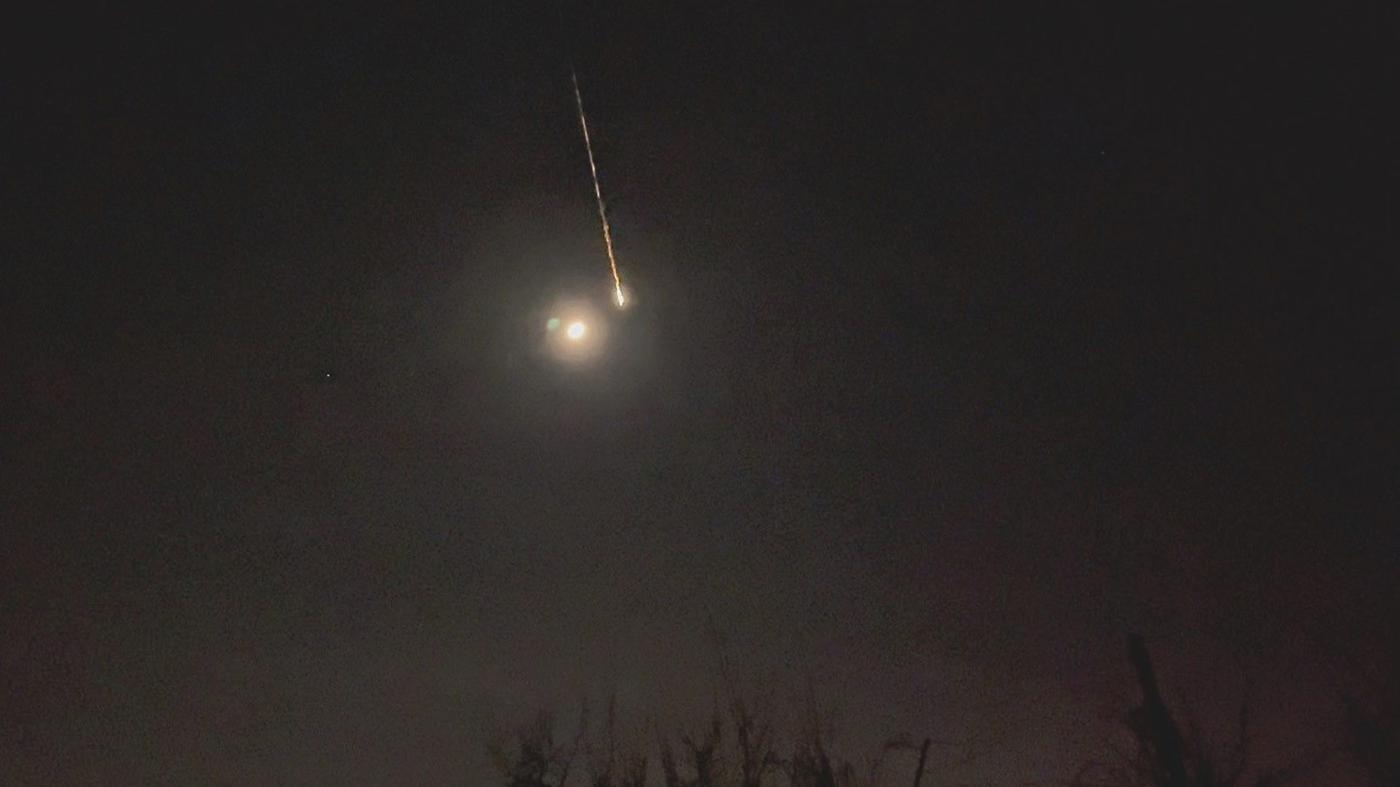Meteor hunters are in the fields near Nenhausen (Havelland) after a small asteroid flared up near Berlin on Sunday night. “You're looking for a needle in a haystack because the fallout is so large and the calculations are so imprecise. Once the first discoveries are made, we can narrow down the search area and refine the calculations,” Andreas Müller from the meteorite task force told the German Press Agency on Monday.
Employees of the Berlin Natural History Museum and private individuals have already begun searching. “Professional meteorite hunters from America are already on their way to Germany,” says Möller.
A formal search is planned
The area has large fields that were still lightly covered with snow, but it had recently melted. “This is the best search area. The fields are not plowed and the vegetation is very sparse,” Muller explained. “We will be on the road again this week and will search the fields systematically,” he added.
Suggested editorial content
Here you can find external content selected by our editors, which enriches the article with additional information. Here you can show or hide external content with a single click.
I agree to be shown external content. This means that personal data can be sent to third-party sites. You can find more information about this in Data protection settings. You can find these at the bottom of our page in the footer, so you can manage or revoke your settings at any time.
Monika Stash, from the team at the Planetarium Berlin Foundation, doesn't see the search as easy. On the one hand, it is not yet clear what material the parts are made of. So they may resemble stones or pieces of coal. The search is easier if meteorites are made of iron, as they can be detected with a metal detector.
The size varies from half a centimeter to half a meter
“You can look for full-sized stones that are about a centimeter or half a centimeter, maybe smaller,” he said.
Hecht of the Leibniz Institute for Evolution and Biodiversity Research at the Museum für Naturkunde Berlin – Lutz Hecht said it was possible to find pieces half a meter high. Size varies greatly.
The American space agency NASA's Asteroid Observatory correctly reported the flare near Nennhausen, west of Berlin, at 1:32 a.m. Sunday. Then many pictures and videos went viral on social media. Accordingly, Fireball itself can still be found in Leipzig and Prague. The celestial body is listed as 2024 BX1.
According to a spokesperson, Nehnhausen's office now hopes that the area will become better known and attract more tourists, especially in the summer months. (dpa)

“Amateur coffee fan. Travel guru. Subtly charming zombie maven. Incurable reader. Web fanatic.”







More Stories
US Election: Trump Vs. Harris – 2024 poll numbers in America
Börse Express – USA: Retail sales rise unexpectedly
German with a Hollywood star: this is how he made millions in America